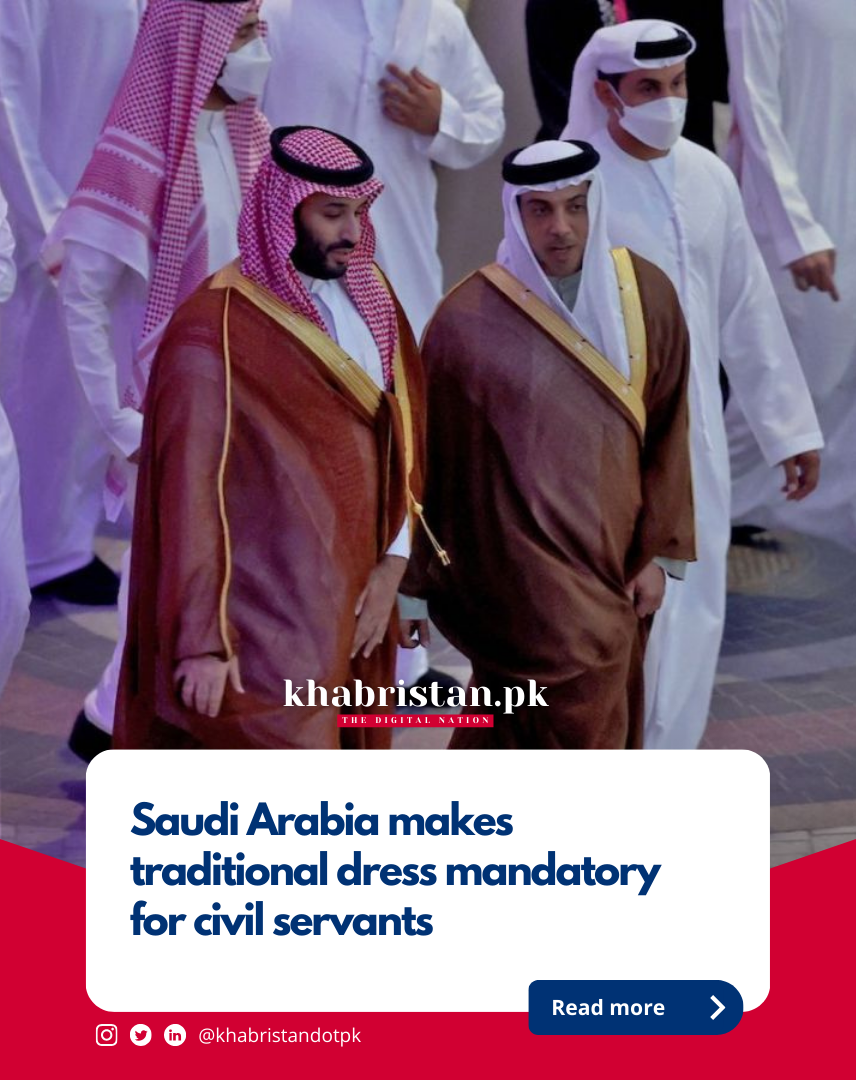Saudi Arabia mandates traditional attire for civil servants, with a new initiative requiring them to wear a long white thobe and headdress during working hours. Exemptions apply for certain roles. Government departments must report on compliance, highlighting the country’s commitment to national identity and maintaining a professional appearance.

Saudi Arabia’s government has made it mandatory for civilian servants to wear traditional attire during working hours.
A recent initiative requires all civilian staff to wear the customary long white thobe paired with either a ghutrah or shemagh headdress from the moment they step into their workplace until they depart.
To ensure adherence, government departments are tasked with submitting regular reports to higher authorities detailing the level of compliance among employees.
This directive underscores the commitment of Saudi Arabia to celebrating national identity. However, certain civil servants are exempt from this requirement due to the nature of their roles, which necessitate specific professional attire.
This exemption applies to professionals like doctors, engineers, and health practitioners.
Applicable across all government departments and agencies, this new system underscores the importance of proper dress, maintaining a professional appearance, and upholding public morals when interacting with government offices.
In a significant move reflecting the nation’s deep-rooted cultural values, Saudi Arabia has made it mandatory for civil servants to wear traditional dress in the workplace. This decision, which underscores the importance of preserving and promoting traditional attire, has garnered widespread attention and sparked discussions globally.
The implementation of this policy is emblematic of the country’s commitment to honoring its heritage and represents a deliberate effort to safeguard the authenticity of traditional attire. By requiring civil servants to embrace and proudly display their heritage through their clothing, Saudi Arabia is sending a message of cultural pride that resonates deeply with its people.
This decision also serves as a catalyst for dialogue about the intersection of tradition and modernity, igniting conversations about the role of cultural heritage in contemporary society. It prompts reflection on the significance of symbolic representation in the workplace, evolving notions of identity, and the dynamics of cultural expression.
As Saudi Arabia takes this significant step, it reaffirms the enduring power of tradition in shaping and defining societal narratives. The expression of cultural identity through attire not only strengthens a sense of belonging and unity within the community, but also acts as a tangible manifestation of the nation’s rich and diverse heritage.
This mandate has sparked thoughtful discussions on the role of dress codes in workplaces and the broader implications for cultural preservation. It invites reflection on the ways in which tradition influences professional environments and serves as a poignant reminder of the profound connections between individual identity, cultural heritage, and the workplace.
As we witness this pivotal development, it calls for a nuanced understanding of the intricate relationship between tradition and contemporary realities. It prompts us to consider the value of preserving cultural heritage in today’s rapidly changing world, and to acknowledge the significance of traditional attire as a means of upholding and celebrating cultural legacies.
Source: ARY NEWS
Summary:
Saudi Arabia has implemented a new mandate requiring civil servants to wear traditional attire, including the long white thobe and a ghutrah or shemagh headdress, during working hours. The initiative aims to celebrate national identity and promote professional appearance and public morals in government offices. Government departments are responsible for ensuring compliance and submitting regular reports. Certain professionals such as doctors, engineers, and health practitioners are exempt from this requirement. The directive applies across all government departments and agencies, emphasizing the significance of proper dress in upholding public image and professionalism.
Disclaimer:
This content is AI-generated using IFTTT AI Content Creator. While we strive for accuracy, it’s a tool for rapid updates. We’re committed to filtering information, not reproducing or endorsing misinformation. – Khabristan.pk for more information visit privacy policy








Leave a Comment